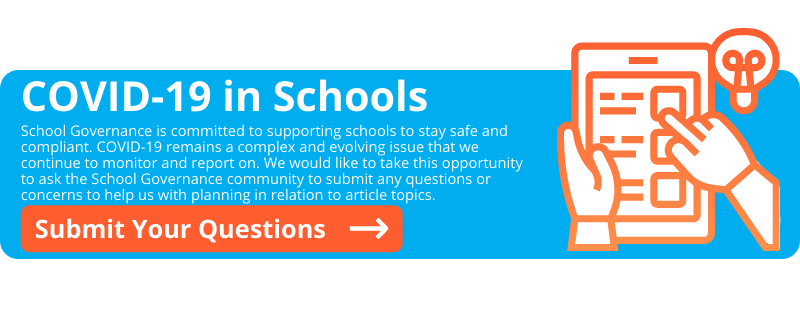Boards should be careful to ensure that they fulfill their legal obligations as board members while at the same time avoid straying too far into what might be termed the management and operations of the school. Boards work for the school but the management works in the school. It is important to maintain this separation of accountabilities and roles (governance versus management). Another way to put this is that the board oversees the strategy but the management implements it.
We are frequently asked:
“Which policies should a board approve?”
There is no one correct answer to this question. It is important to understand the variety of roles that a school board can have regarding school policies. School boards will vary considerably as to which policies they determine should be ‘board developed’, which policies they decide they should review and approve, and which policy areas that the board is happy just to know that the policy exists and is compliant.
We discuss these three categories below and list the sorts of policies that schools would most likely expect to be within each of the three categories.
Board Policy Role 1 – Board Governance Policy Development
‘Board developed’ policies are required for board governance decision-making and operations. Boards should develop, approve and review these policies regularly.
Policies in this category include:
- financial management policies in relation to:
- key financial metrics and budget approval processes including enrolment forecasts and budget parameters
- financial reporting processes and matters to be reported and at what frequency
- fee debtors and debt collection policies, cash holdings, liquidity and investments
- setting fee structures and fee increases (as distinct from governance)
- DGR (deductible gift recipient) funds policies and establishment documents
- external audit and appointment of auditors and term of appointment
- corporate partnerships and strategic relationships
- not-for-profit compliance policies and procedures.
- board governance policies such as in relation to:
- the overall structure of the organisation such as the ‘org chart’ and the role descriptions and accountabilities that support it
- establishment and terms of reference of board committees
- board and committee agendas
- financial and non-financial reporting for the board and the board committees
- board code of conduct
- related party transactions and conflict of interest
- delegations (to the principal and senior management etc)
- professional learning
- board member succession and appointment
- new principal appointment policy
- principal remuneration
- principal and senior management performance evaluations
- principal emergency succession plan
- school mission and values
- strategic planning
- board discipline (including speaking to the media and the use of social media)
- board (as a whole and individual board member) evaluation and review
- resolving conflicts among board members
- appointment of office holders and terms
- board member induction
- record keeping
- board member disclosure (fit and proper person)
- discounts, scholarships, bursaries and school fees
- enrolment policy and procedures
- building naming
- school property use for non-school activities, lease of buildings renting of buildings and facilities
- property master planning policy
- ACNC compliance policies
- policies related to the mission, ethos and culture of the school including religious ethos, teaching, and religious observance
- policy review process and the schedule for governance and financial policies.
Board Policy Role 2 – Policies Where the Board Needs to Have Some Detailed Knowledge, and/or Review and Approve Them
What is in this Category?
This policy role of the board relates to school policies where legislation or regulations often require board members to have knowledge of certain policies including in some cases quite detailed knowledge of the policies. This category also includes policies that are regarded by various board governance standards (e.g. ACNC or school regulators/registration bodies) as part of good governance practice by a board. It also includes policy areas where boards, for various reasons, may decide to have more direct and detailed policy oversight. For example, a board might decide to regularly review health and safety policies because there has been a recent history of policy non-compliance in this area and an increase in health and safety incidents. The policies that are included in this category will therefore vary from one organisation to the next depending on the board decisions about which policies they wish to review and approve. This category is also one where ‘governance versus management’ issues can arise.
School Regulators Require Greater Board Accountability
The list of policies in this category can be lengthy. It is also worth noting that school regulators are increasingly requiring higher levels of board accountability. This increased accountability means that school board are required to have a working knowledge of an increasing number of policies including how the policies are being communicated and information as to how the policies are being effectively implemented. Regulators are now much more explicit about board accountability for school operations.
Child Protection, Child Safe and Child Safeguarding
There is a clear expectation that boards will ensure that child safeguarding policies meet the required standards and are being effectively implemented. Many of the National Principles for Child Safe Organisations explicitly or implicitly place specific responsibilities onto boards. For example, Principle 1 states that “child safety and wellbeing is embedded in organisational leadership, governance and culture”.
What Does it Mean for the Board to Review and Approve these Policies?
Reviewing and approving means having an understanding of what is in the policies and the processes for policy development, regular review and updating. It also involves how the policies will be communicated and implemented.
Limitations on Board Review and Approval
It should be noted that, for many of these policy areas, the board members will not have the necessary expertise, school experience or knowledge of legislation or regulation to comment directly on the content of these policies. In general, the role of the board in policy review and approval should be to satisfy themselves that the policy exists, that it is comprehensive and then ensure that the school executive confirms that the policy is compliant with legislative requirements and that internal processes are in place to ensure that the policy is being regularly reviewed and updated. Board members can (and should) however, ask any specific questions about the policies, including questions related to how the policies are to be reviewed, communicated, implemented, monitored and enforced.
Policies in this category might include:
- adult codes of conduct (child safe)
- complaints handling
- the school property maintenance plan
- the policies that describe the overall system for managing WHS/OHS/OSH in the school and also emergency management policies
- records management and archiving
- academic policies including programs and courses offered including academic enrichment
- co-curricular, sport and music programs
- tours and excursions, missions and service opportunities
- business continuity
- school registration (particularly the governance section/governing body)
- teacher registration or accreditation
- key stakeholder communications policies such as for alumni groups
- related bodies constitutions (e.g. alumni groups, parents’ associations, foundations)
- ICT governance
- data security/plan and disaster recovery
- whistleblower
- financial management policies and fraud and corruption
- privacy and notifiable data breaches
- social media for students, staff and volunteers
- overseas students/CRICOS registration
- student codes of conduct
- student and staff social media use
- student anti-bullying
- student duty of care and wellbeing
- staff anti-bullying and harassment and grievance
- staff benefits and entitlements
- staff conflicts of interest
- other policies as determined by the board.
Board Policy Role 3 – ‘Be Aware Of’
This is a way of saying that boards benefit from having an understanding of the total ‘policy universe’ for the school. This may mean providing board members with access to the school operational policies via an online login. While some principals may be concerned about doing this, those concerns will often relate to a lack of clarity around the board involvement in policy management and also a lack of clarity or some tension regarding board ‘governance versus management’.
What might be included in this category include lists of policies in relation to:
- WHS/OSH/OHS
- student duty of care
- human resources
- school registration
- boarding
- overseas students.
A Final Word on Policy Review
Just as with board approval of policies and the suggested approval categories outlined above, the same categories are also relevant for board review of existing policies especially where policies have been substantially updated. It is helpful for boards to provide guidance to the management team as to what level of policy change requires their further review or approval. It would be crazy to think that a policy that has been reviewed should require board approval where the only changes were very minor and non-substantive.
This kind of guidance from boards can be very helpful to the school management team and means that policies can generally be updated and come online quickly without waiting for board approval processes.
School Governance Articles for Further Reading





